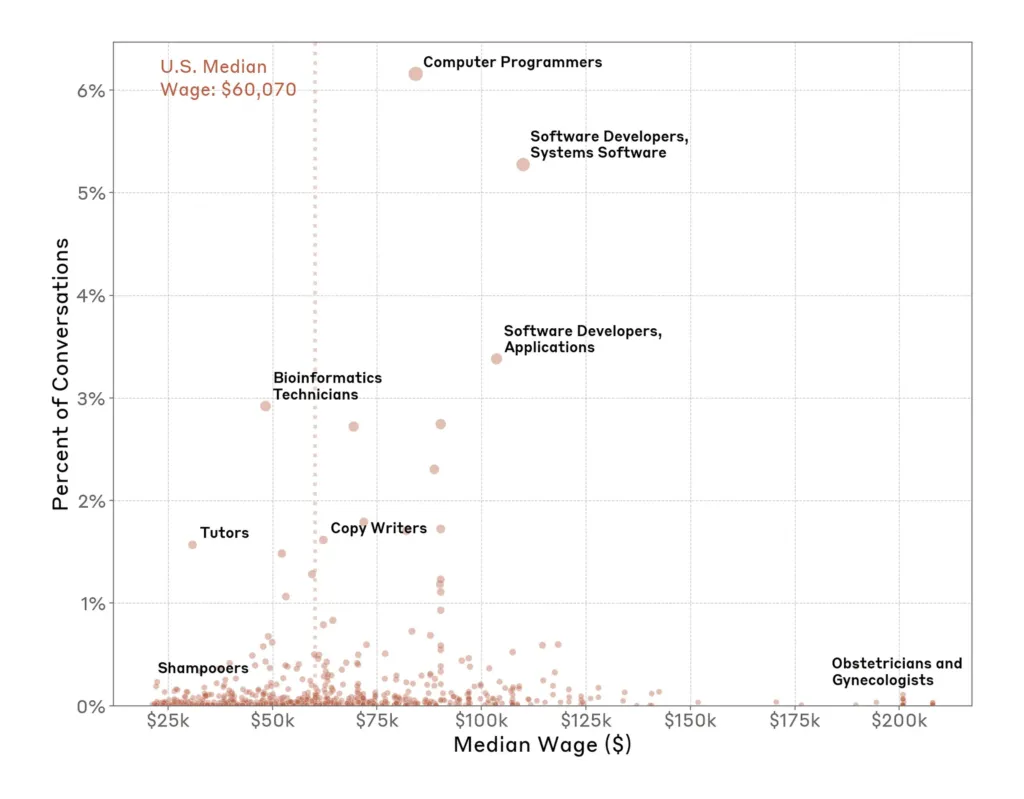More individuals are using AI to enhance their work rather than allow the technology to completely automate it away, a study conducted with Claude data has found.
Diving into anonymized conversations from Claude.ai, the data shared by its parent company Anthropic indicates that AI is being used to augment — rather than automate — tasks across more than half (57%) of workplace settings studied.
Specifically, AI appears to be enhancing tasks in mid-to-high wage occupations like computer programming and technical writing. These roles notably benefit from AI’s capabilities, engaging the technology for tasks such as code debugging and editing, with 37.2% involvement in the “computer and mathematical” job category alone.

This trend — while yet to be solidified — would contradict fears of widespread job displacement due to automation.
The research also touches on the economic dynamics, with AI use being less prevalent in tasks within both low- and high-wage brackets, likely due to practical barriers and current capability limits.

The Bigger Picture: Anthropic’s findings are part of a broader dialogue about the transforming jobs landscape due to rampant AI evolution.
Sam Altman, CEO of OpenAI, earlier on Sunday commented in the context of AI’s evolution that while automation could mess up the balance in the job market, the current trajectory suggests a more gradual and controlled integration of AI as a “virtual junior co-worker” to support human efforts, rather than replace them outright.
Meta CEO Mark Zuckerberg who is in favor of creating open-source large-language models (LLMs) has also said he expects AI to be able to code at part with a mid-level engineer by the end of 2025.
If past trends hold up with AI — technology tends to create new roles even as it alters existing ones, and there’s speculation about how AI could redefine professional landscapes over the coming years.
The predominant outlook, currently, is one of augmentation — a tech-assisted expansion of human capability, not its contraction.